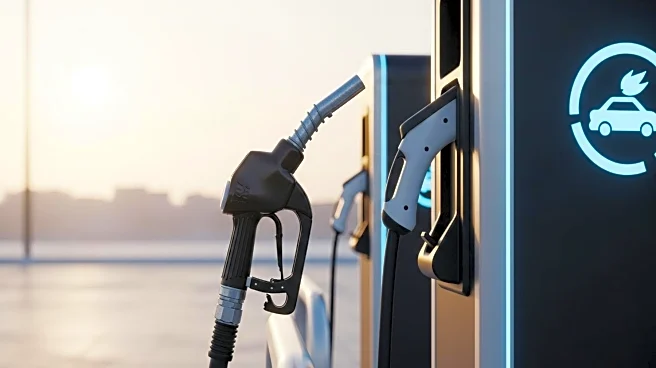What is the story about?
What's Happening?
Despite advancements in electric vehicle (EV) charging infrastructure, U.S. consumers continue to favor gasoline-powered vehicles. A recent survey indicates that nearly half of EV drivers have not experienced issues with charging stations, suggesting improved reliability. However, the U.S. market remains resistant to a full transition to electric vehicles, contrasting with Europe, where a significant shift towards electric mobility is underway.
Why It's Important?
The persistence of gasoline vehicle preference in the U.S. highlights the challenges facing the EV market, including consumer habits, infrastructure gaps, and economic factors. While improved charging reliability is a positive development, it may not be sufficient to drive widespread adoption without addressing other barriers such as vehicle cost and range limitations. This situation underscores the need for comprehensive strategies to promote EV adoption, including incentives, education, and infrastructure investment.
Beyond the Headlines
The reluctance to transition to EVs in the U.S. may have broader implications for environmental policy and international competitiveness in the automotive industry. As other regions, particularly Europe, advance in electrification, the U.S. risks falling behind in terms of innovation and sustainability. This could affect the country's ability to meet climate goals and maintain leadership in the global automotive market.
















